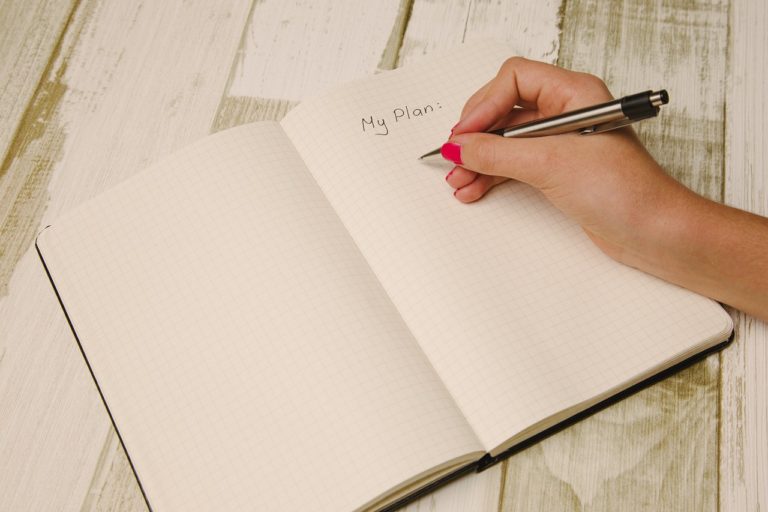
9 DO-IT-YOURSELF THERAPY QUESTIONS
Not ready, willing or able to go see a therapist? Answer these 9 questions on your own for some pretty thorough self-assessment work.
I get it. Despite the growing number of celebrity endorsements, there is still a stigma associated with going to therapy. But unless you’re a straight up American Psycho sociopath, you’ve probably wondered what it’s all about. And you’ve probably been at least a little curious to see what it can do for you.
Many people come to therapy for the first time nervous about what they’ll have to talk about, or what the therapist might think of them. We usually let you take the lead about why you are there, but even then there can be some hesitation in divulging deep, dark secrets right away.
Here are some basic mental health questions that you can answer on your own.
Devote some time to this. It’s not a process that is meant to be rushed through. These might be questions you’ve never thought about the answer to. So give yourself some quiet time and really give this some attention. If you journal through your answers, even better. And one last piece of advice: If you’re squirming in your chair thinking about the answer, keep going. You’re on the right track.
1) What do I do for stress relief?
Therapy 101. People tend to seek counseling when life feels overwhelming. And we know that stress is a part of everyone’s life, so isn’t the blatantly obvious question: What are we doing to manage it?
The most common answers I hear when I ask clients what they do to relieve stress are watching TV and drinking.
While I’m certainly not trying to take away anyone’s Game of Thrones or nightcap, they don’t count. If you don’t already know what your go-to activities are, the beauty of the internet is that thousands of other people’s ideas are out there for you to discover. Commit to researching stress relief techniques for about 15 minutes on your own.
*Also important* If you answer that going on vacation helps you relax, that totally counts. But if you only do this one weekend a year, we need to evaluate your math skills. This would imply that 4 days away is enough to offset the other 361 consecutive days of stress. (And we seem shocked that this isn’t working.) If we feel the effects of stress every day, then we need to be doing something, however small, every day to find some equilibrium.
Want more?
Do a personal assessment of these 4 major self care components:
- Sleep: Are you getting at least 7 hours per night?
- Nutrition: Do you give your body what it needs to function? Physical health can directly impact mental health. Go see your doctor. Make sure you are getting the vitamins and minerals you need.
- Exercise: Do you move in some way, shape, or form on a regular basis? If you sit at a desk all day, do you give yourself periodic breaks? (BTW, it’s #1 on most stress management lists)
- Smoking/Drinking: Smoking should be “no.” (It’s amazing to me how many people still have not gotten this memo.) If you drink, does it impact any other areas of your life?
2) What does happiness mean to me?
Your internal dictionary is super important. We throw around words like “happiness” and “love” all the time, but what do they really mean to you? If happiness is your ultimate goal, shouldn’t you know how you define it?
Question your vocabulary:
- How Do You Define Happiness?
- How Do You Define Love?
- How Do You Define Purpose? And what gives you a sense of purpose?
My favorite read for some in-depth understanding of love: The Five Love Languages.
Want more?
Where did you learn these definitions?
How did you learn your version of what these things look/feel like?
3) How was I affected by my childhood?
Yes, you have to go there.
One of the first moments I fell in love with Brene Brown was while watching a TedTalk and hearing her describe her personal experience of going to therapy. She told the therapist the issues she wanted to work on and followed that up by saying, “…but here’s the thing: no family stuff, no childhood shit. I just need some strategies.” And the crowd laughs knowingly.
So yes, whether you like it or not, our parents and our childhoods shape us. Most of the time it’s worth having some awareness and understanding of how. Awareness is a necessary catalyst for change.
Want more?
What did I learn about relationships? About marriage? About gender roles in a household? About affection?
How did my parents’ relationship (or lack of) influence my relationships?
What did I learn (or not) about conflict resolution? Did I learn how to fight fairly? Did I learn how to solve problems?
What did I learn about communication? (Am I passive aggressive? Do I avoid conflict? Am I assertive? Do I default to anger and yelling? Do I withdraw? Do I get defensive?)
Were you an only child or did you have siblings? Looking back, would you say this was helpful or harmful? How? Why?
4) What are the negative thoughts running my life?
It is a very important therapy step to be aware of the thoughts that constantly exist in the back of your mind. Sometimes they are difficult to identify because they are on a subconscious level. Think of it like a computer program that’s always running in the background. You aren’t always looking at it, and you may forget it’s there, but it’s running the show behind the scenes. What this means for human behavior is that these thoughts are affecting the way we react to, respond to, and perceive things. Oh, and they completely influence your emotions.
The mind is like an iceberg, it floats with one-seventh of it’s bulk above the water.
Sigmund Freud
Negative thoughts (your therapist might call them ‘cognitions’) are the statements or beliefs that invoke feelings of fear, guilt, and shame. The thoughts that keep you up at night, and the thoughts that you don’t even want to admit to your best friend. The most common of these statements is “I’m not good enough.” Which applies to pretty much everyone in some capacity. I’m not a good enough person, mom/dad, husband/wife, student, child, employee, boss, etc.
Awareness of this negative voice gives you the ability to challenge and change it.
If you still need some help on this one, ask yourself the following:
- What do I tell myself when I look in the mirror?
- What is the first thought I have when someone hurts me?
- What is the first thing I say to myself when I make a mistake?
- What is something I believe about myself to be true, that would sound really mean if I said it about someone I love?
Want more?
Think back on the entire timeline of your life. What situations, moments, or people come to mind that created or reinforced these thoughts?
5) What are the “shoulds” making me feel like shit?
Our lives are full of “shoulds.”
- I should go to college
- I should be married by 25
- I should have a baby
- I should be farther along in my career
- I should be making more money
- I should….fill in your blank(s)
It’s one thing to be ambitious and set goals for yourself. But the first problem with most of our ‘shoulds’ is that they don’t belong to us. For example, I’ve had many conversations with people about why they should get married. Some responses include, “My parents expect me to,” or “All my friends have gotten married,” or “It’s the next step.” (Whose next step?)
The second problem with our ‘shoulds’ is that when we don’t follow through with the thing we think we should do, we dive straight down the rabbit hole of self deprecation. So all my Type-A’s out there who think they should be able to be/have/do it all end up in therapy because they feel like failures. They aren’t keeping up with the Jones’s, and their presumably perfect-life social media posts. (Just so you know, Mr. and Mrs. Jones are both in therapy. Weekly.)
Want more?
How would your life be different if you got rid of your shoulds? What would it feel like?
6) What are my excuses?
Sometimes we make excuses because we simply don’t want to do something.
“I’m going to tell that guy I have a stomach bug because I don’t want to go out with him.”
I’ll write a separate post for you on why you should just be honest, but for now, back to excuses.
The major thing you need to identify is why you are making the excuse, for things you actually want to do. I work with people all the time who can give me a laundry list for why they can’t do something. The excuse is just a cover up. A distraction. A way to justify not doing it, and ignore the real reason they aren’t following through. And the real reason is usually rooted in fear. Addressing the fear is critical.
Want more?
Think of a recent time you made some seemingly acceptable excuses as to why you didn’t do something. Would any of the following statements apply?:
- I might fail.
- I might make a fool of myself.
- I might not be good at it.
- I don’t deserve that.
7) How would I assess the quality of my relationships?
It’s a major component of Maslow’s Hierarchy of Needs. Our support system can be directly tied to overall happiness, self-esteem, and the ability to heal.
Not sure what this question means? Ask yourself if you feel supported, loved, and respected by the people in your life. How vulnerable can you be with them? What do you think it means to be a good friend/parent/spouse/child? How are you currently doing using your own rating scale?
Want more?
Motivational speaker Jim Rohn says, “You are the average of the five people you spend the most time with.” Who are those 5 people? If you had to list 3 qualities that best define each of them, are you exhibiting those qualities yourself?
8) What are my unrealistic expectations?
These are similar to shoulds, except we aren’t as consciously aware of expectations. They are beliefs that might be absolutes for us, but not everyone around us. We all have different views, priorities, and values based on individual life experiences. The danger with expectations is that they set us up for failure or disappointment. Sometimes both.
Some examples of unrealistic expectations, to get the mental ball rolling:
- I expect that my husband will take out the trash. (Leaves you disappointed in your spouse)
- I expect that marriage means fidelity and commitment forever and ever. (Leaves you feeling like a failure if your marriage ends)
- I expect that my parents will love me unconditionally.
- I expect I’ll get my dream job right out of college.
- I expect people to treat me the way I treat them.
- I expect to be an awesome mom, kick ass at my job, be a great wife, and have a clean house and a social life and a consistent workout routine. (This one is my fave)
Want more?
Think of a time when you felt extremely disappointed. If you go back and reevaluate that situation, was there an expectation involved? Either of yourself or someone else.
9) What do I want?
This is one of those questions you have to answer as fast as you can. Don’t talk yourself out of it, or think about why it won’t happen. Many of us are so bogged down by day-to-day life that we’ve lost the ability to even daydream.
If you could picture your ideal life, what would a typical day/week look like?
YOUR ideal life. Yours. No one else’s expectations or shoulds.
What is your dream job? What do you want to spend most of your time doing?
One of the worst emotional games we play with ourselves is “I’ll Be Happy When.” I’ll be happier once I graduate. I’ll feel more confident when I get my Ph.D. I’ll feel accomplished when I can buy a house. I’ll feel good about myself when I get married. I’ll be fulfilled when I have a baby.
If you actually want those things, great. The bigger concern is that you don’t get to feel happy, satisfied, or fulfilled in the meantime. (This is when life is actually happening, in case you’ve been too distracted to notice). And even worse, what happens if those ‘whens’ never happen?
On the flip side, sometimes we just think we want these things because we are using society’s benchmarks. It’s OK to be true to yourself and your own wants, even if they aren’t the same as everyone else’s.
Want more?
Are there any changes, however small, you can make NOW to get you closer to your vision?
To be yourself in a world that is constantly trying to make you something else is the greatest accomplishment.
Ralph Waldo Emerson
Hopefully these questions help you gain a better understanding of yourself, and will help you overcome the stigma associated with therapy.
If you are going through something that feels complicated or unmanageable, I would encourage you to reach out to a therapist. Websites like PsychologyToday and GoodTherapy make it super easy to search for a someone in your area. These sites also have filters for specialties and insurance to help you find the right person for you.
A small piece of insider-therapy advice: If you decide to take the courageous leap and work with a therapist or counselor, make an appointment with at least 2 or 3 to start. Effective therapy depends a lot on the relationship you develop with your counselor. Meeting with someone in person will give you more of a sense of who you’ll jive with best.
The benefits of self-reflection may be enough for you. But if you want more guidance, or you simply don’t want to go it alone, working with a qualified professional can be one of the most rewarding experiences you can give yourself.


